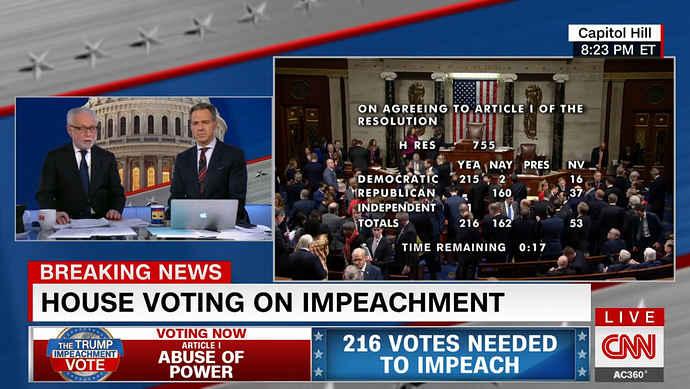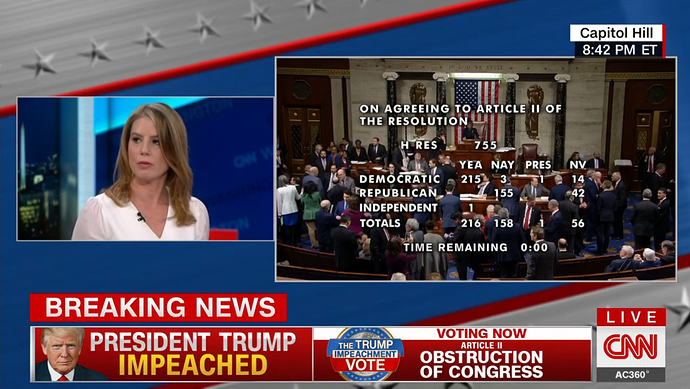Factbox: Trump impeachment - What happens next?
Here is what will likely happen in the coming days:
Wednesday, Dec. 18
The House will convene at 9 a.m. EST (1400 GMT) and spend an hour debating a rule setting the parameters for a six-hour debate on the articles of impeachment.
At around 11 a.m. EST (1600 GMT), lawmakers will hold a vote on the rules of the debate, which is expected to pass. The vote could possibly be delayed by Republican parliamentary tactics.
After that, the lawmakers are expected to begin debating the articles.
Once the debate ends, probably in late afternoon or early evening, the 431 sitting House legislators will hold separate votes on the two articles of impeachment.
The vote is likely to fall almost entirely along party lines, with support from nearly all of the chamber’s 233 Democrats. All 197 House Republicans are expected to vote no.
If impeachment is approved, the House would select lawmakers known as managers to present the case against Trump at a Senate trial. House Democrats say most of the managers are likely to come from the Judiciary Committee, and possibly from the Intelligence Committee that led the investigation.
Early January
Trump would face a trial in the Senate to determine whether he should be convicted and ousted from office. The Senate is controlled by Trump’s fellow Republicans, who have shown little sign they will find him guilty. A two-thirds majority of those present in the 100-member chamber would be needed to convict Trump.
U.S. Chief Justice John Roberts would preside over the trial. House managers would present their case against Trump, and the president’s legal team would respond. Senators would act as jurors. A trial could involve testimony from witnesses and a grueling schedule in which proceedings occur six days a week for as many as six weeks.
Senate Majority Leader Mitch McConnell has said a majority of the Senate could approve a shorter process by voting on the articles of impeachment after opening arguments, without witnesses.

 Could be the basis for a new drinking game!
Could be the basis for a new drinking game!




